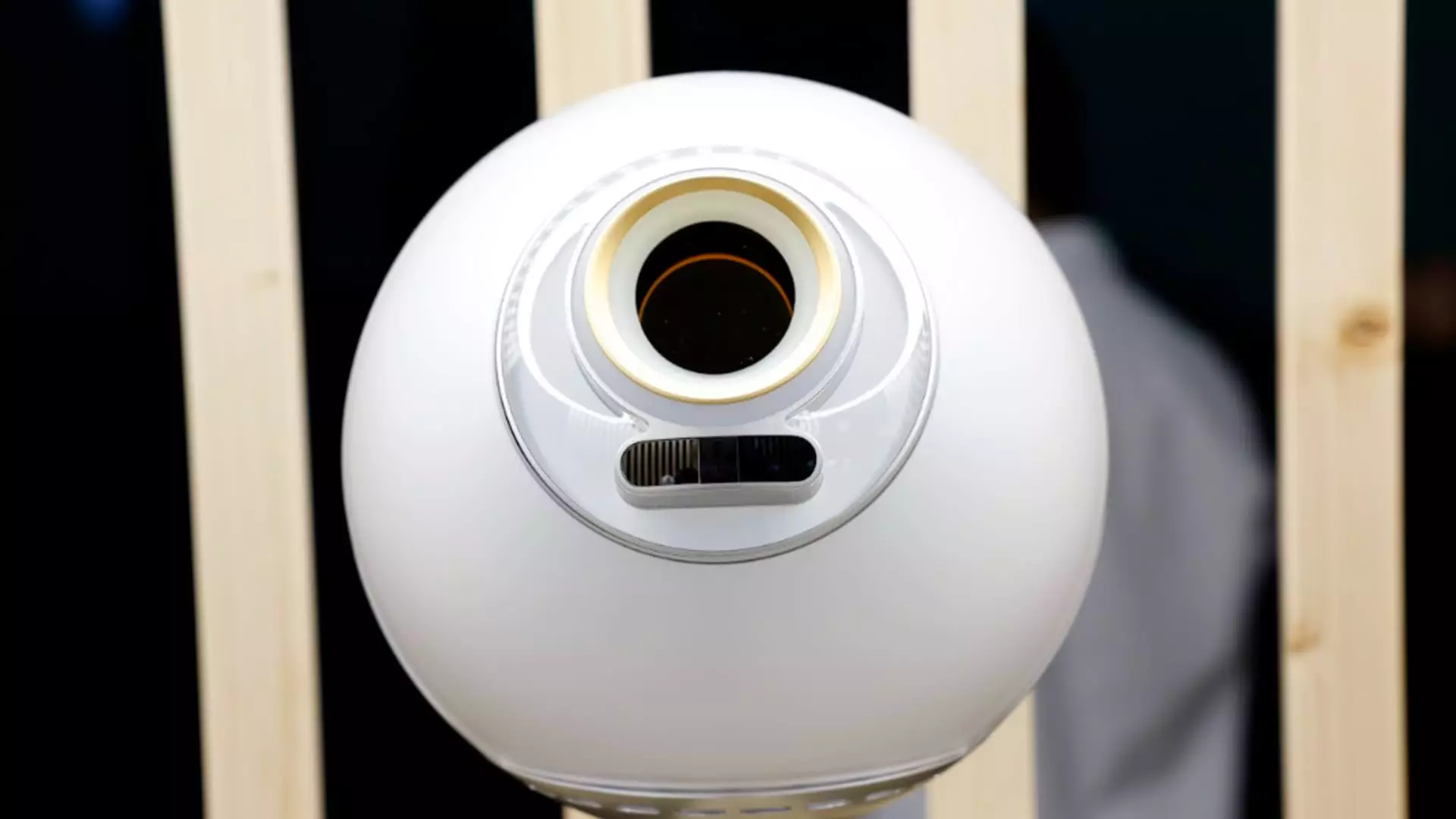In an era marked by increasing digital fraud and the encroaching threat of artificial intelligence-enabled deception, the launch of the World project in the U.K. marks a significant step towards advancing identity verification. Co-founded by the acclaimed Sam Altman, CEO of OpenAI, this initiative seeks not only to authenticate individual identities but also to provide robust solutions against the burgeoning misuse of technologies like deepfakes. The introduction of the Orb, a spherical eye-scanning device designed to accurately capture and analyze a person’s iris and facial features, embodies a compelling fusion of biometric science and digital innovation.
Available from Thursday in London and soon in other major U.K. cities, World is strategically positioned to reshape the landscape of identity verification. As public concerns over digital security escalate, the timing of this launch is impeccable. This venture aims to create a unique irritable code for each individual—an ostensibly seamless means of authenticating identity that goes beyond traditional methods.
The Mechanics of Biometric Authentication
At its core, World employs a fascinating process of biometric verification. Upon scanning an individual’s eye via the Orb, a unique iris code is generated. But the intrigue does not end there; users are also introduced to World’s native cryptocurrency, WLD, acting as an incentive for participation in this innovative identity system. This dual-function approach enhances user engagement while ensuring a secure means of authentication across various platforms, including popular applications like Minecraft, Discord, and Reddit.
Adrian Ludwig, the chief architect of Tools for Humanity—a key contributor to the project—has elucidated World’s ambitions to counter growing digital threats. With enterprises and governments alike expressing significant interest, the ability to mitigate fraudulent activities across sectors, from banking to digital gaming, is a pivotal motivation driving the need for immediate adoption. The distinctiveness of World—it’s not just a verification tool, but a potential game-changer for online security.
Privacy Concerns and Challenges Ahead
Despite the promising aspects of the project, World faces skepticism related to user privacy. Since its inception, the initiative has confronted challenges about the collection and management of sensitive biometric data. The organization’s approach to encrypting such data and its commitment to deleting original scans are reassuring, yet they lead to broader questions about trust and security in a hyper-digitalized world.
The decentralized model of verification, relying on user smartphones rather than cloud storage, attempts to assuage privacy fears. However, the practicality of implementing this system on an expansive scale begs the question: can a network with billions of users operate efficiently without compromising security? Ludwig confidently asserts that World is equipped to foster this scalability, with operations localized on individual devices. Nonetheless, the stakes remain high, particularly in light of the increasing sophistication of new AI systems that can easily bypass contemporary safeguards such as facial recognition and CAPTCHA.
The Evolution of Digital Identity
World’s advancement could signify a transition from traditional forms of identity verification to more secure digital frameworks. Governments around the globe are exploring digital ID solutions, recognizing their potential while grappling with previous pitfalls—such as India’s Aadhaar initiative, which, although widely adopted, faced criticism for inadequate security and social inequality concerns. Ludwig asserts that World could be the catalyst that governments are seeking to bolster their identity infrastructure, significantly reducing fraud risks.
While he admits that there is still considerable regulatory scrutiny and numerous challenging questions surrounding privacy, efficacy, and risk exposure, the dialogue with regulators—including the Information Commissioner’s Office in the U.K.—is an encouraging step forward. Engaging with authorities not only demonstrates World’s commitment to legal compliance but also highlights the significance of ethical considerations in the evolution of biometric technology.
The Future of World and Beyond
As World gears up for its expansion, with a notable presence already established in the U.S. through various flagship retail locations, the forecast looks ambitious. Ludwig’s aspirations to broaden the user base by an order of magnitude signal a revolutionary approach to identity verification, yet this endeavor will not be without its hurdles.
Through design and functionality, World has the potential to redefine how we perceive and enact identity verification in an increasingly interconnected world. However, the true measure of its success will ultimately hinge on its ability to navigate privacy concerns while assuring users that their identities are secure, respected, and justly managed amidst rapid technological advancements. The question remains: can World successfully delineate itself as a pioneer in the idyllic landscape of digital identity systems, or will it fall prey to the inevitable challenges faced by innovative ventures in the modern day?

